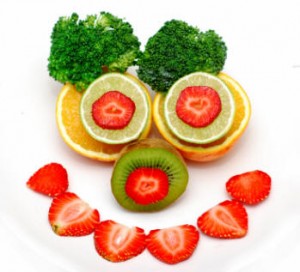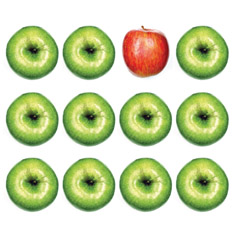A study conducted in Rochester, New York reveals doubts over the effectiveness of casein free and gluten free diets on improving the symptoms of autism. According to the study, there are no demonstrable improvements in the small group of children studied following the autism diet.
A Look at the Autism Diet
Impaired communication, social interaction and restrictions on activities, due to repetitive behavior, are some of the characteristics of autism spectrum disorder. The condition also involves gastrointestinal conditions such as celiac disease (a disease where the small intestine becomes damaged when gluten is consumed). The cause is a complex combination of factors and how they co occur still remains a mystery.
Autism can be a debilitating condition and treatment usually focuses on lessening the symptoms by managing every aspect of the child’s life. Diet is one of them. Managing autism through dietary intervention is based on two hypotheses: the first one states that allergies in food can exacerbate the symptoms of autism, second one states that vitamin and mineral insufficiency may cause some of the symptoms.
The autism diet involves choosing foods that are gluten free and casein free. Gluten is found in foods such as wheat, barley, rye and oat, while casein is the major protein found in milk. 27% of parents with autism claim that following this diet is helpful.
What Research Says?
A small study done by an associate professor of pediatrics at the Golisano Children’s Hospital in New York reveals otherwise. The study involved 22 children with autism spectrum disorder. 14 of the children went on the study. All the participants were placed under strict gluten free and casein free diet for a span of four weeks. After undergoing the strict autism diet, the children were given a challenge snack of either: wheat flour, evaporated milk, both or placebo.
The practice continued until all children received a snack three times for 12 weeks. Children’s behavior, sleeping pattern, bowel movement, socialization and communication skills were observed before and after the snack challenges and they found no difference between those given the snacks and those given just placebos.
Though the results show no significant difference, the researchers still recommend further studies on the aspect of diet and autism symptoms be conducted. Another co-researcher also suggests that a study that is more inclusive, or those including children with apparent GI issues should be done.
What Other Researchers Suggest?
While the New York study suggests that the autism diet may not be as effective, other studies reveal that there are certain diets that might work. Research is taking an interest in autism diets that have been popular among parents for a long time. This is according to the Center of Autism Research in Philadelphia.
In an effort to improve their child’s condition, parents are going beyond medical management and are beginning to explore alternative and complementary medicine. Some researchers say that the scientific community tends to ignore what parents actually use to lessen their child’s symptoms.
The length of the clinical trials and the studies involving diet and autism patients might also be an issue. 18 weeks of study, according to critics, may not be enough to produce real results. This is compared to six months and even one year of experience of parents with a certain dietary intervention, and some parents suggest it takes this much time to see results.
Despite the studies casting doubts on the effects of the autism diet, some experts still suggest to try it, though parents are advised to approach it with skepticism.
Guest Author Bio:
Alapati Amarendra is a doctor and he blogs about recipes, conditions like autism. He is a middle eastern recipes lover and he recently browsed an awesome website which contains various diet recipes.











